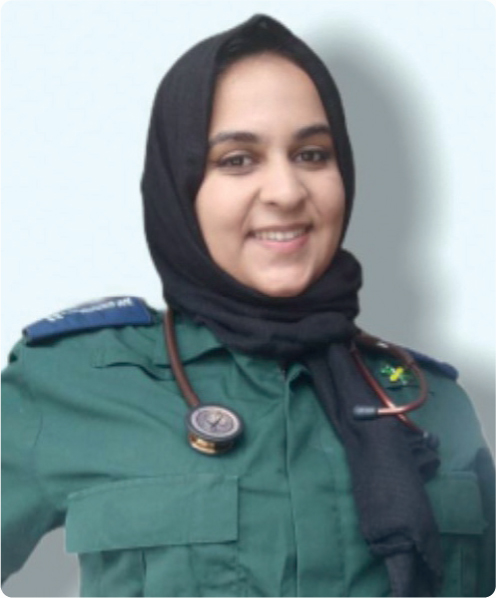
Transitioning from student to registered paramedic was one of the biggest jumps in my career. I remember turning up for my first shift as a qualified paramedic, completely disorientated to an unfamiliar station, people, protocols and one less person on an ambulance. Suddenly, all eyes turned to me in making decisions and coming up with treatment plans. While I had excellent crewmates to help me form these, I stilll felt the uneasiness of being the individual with the most ‘clinical authority’ in that moment and the sense that if I made the wrong plan, all my hard work for 3 years would be put to question.
However, instead of allowing myself to become overwhelmed, I rose to the challenge. This is what I prepared and studied so diligently for. Instead of being full of trepidation, I was brimming with excitement. I thought it odd I was like this: my friends and colleagues mentioned the fear of ‘losing their PIN’ and not having their mentor to validate their practice. While I resonated with these, I viewed them as another barrier to overcome and could not wait to do so.
The 3 years I studied to get to where I am now were full of self-doubt. There were multiple reasons for these feelings, but they all came down to one subject—the lack of diversity. From the first day at university and on an ambulance, I became very aware that there were not many who looked like me or understood my background. Concurrently, my family and community were unsure of my decision to become a paramedic because they had never known another person of my ethnic minority who was in the profession and were worried that I would not be accepted. Therefore, I always had the voice in the back of my head telling me I would need to prove myself to not only my community, but also to be seen as ‘good enough’ to be equivalent to my peers.
It is natural to quickly identify and pay closer attention to ‘the odd one out’ and, while others around may not have felt any different, I spent most of my time in practice with the thought that all eyes were on me. To avoid this, I did everything I could to ensure there would not be a reason to question my capabilities. My time in university was spent searching for ways to go above and beyond, whether by taking up opportunities to attend further training after lectures, attaining a scholarship, or undertaking an elective placement which took me almost 2 years to organise. While I look back on these achievements with pride, I realise that the intentions behind these were not of a settling nature.
This all changed the moment I received my degree certificate. This gave me the validation that I was in fact ‘good enough’. Coming back to my first day as a paramedic, although those same feelings I had as a student crept up, they were almost immediately dismissed as I signed onto my shift. I find myself enjoying the autonomy, the responsibility, and the challenge of it all. Yes, I have had my fair share of worry in making the wrong decision, but I remind myself that no one is ever a perfect clinician, and this is only the beginning of a huge learning journey. Perhaps it may have been easier for me if there were more individuals in the ambulance service to identify with; however, being the change is something I am learning to get accustomed to, and I always hope that I can aid others with similar experiences to mine.

